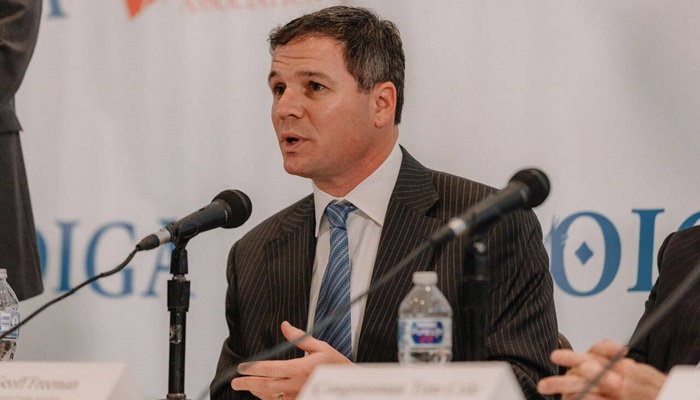A short letter to federal lawmakers signed by Geoff Freeman (pictured), President and CEO of the American Gaming Association (AGA), highlights what the national trade group views are the top priorities regarding the operation of the sports betting market in the U.S. following the Supreme Court’s repeal of the Professional and Amateur Sports Protection Act (PASPA) on May 14, 2018.
Among the main points highlighted in the letter are the organization’s support for sports betting regulation at the state level and a commitment to ensuring a secure and successful U.S. sports betting system, including the opportunity to replace illegal wagering estimated by the AGA to be a $150 billion a year business.
The letter reads, “In the wake of the Court’s ruling, some have called for Congress to enact a federal framework to regulate sports betting. AGA believes this is unwise, unnecessary and out of step with public sentiment indicating 7 in 10 Americans think this decision should be left to each state, not the federal government.”
Freeman leaves no doubt where the AGA stands in regard to who should regulate the lucrative market, whether it’s worth $150 billion or half that as some economists suggest, and that is not the federal government. He argues that the gaming industry is already subject to stringent regulations, including anti-money laundering regulations, which address a broad range of issues. He asserts that there is a “strong record of compliance in that area.”
The letter goes on to state that within the 26-year span of PASPA, Congress has remained removed from the regulation of slot machines, table games, lotteries and “other gambling products,” and should likewise stay out of sports wagering regulation with the exception of “an identifiable problem that warrants federal attention.” Freeman also states in the letter that “any attempts by the federal government to neuter state regulatory power” will be combated by the AGA.
Other major points include placing consumers first, with the AGA promoting “strong consumer protections,” promoting responsible gaming and advertising, encouraging contracts over statues and strengthening game integrity.
Regarding the latter, the National Basketball Association (NBA) recently defended its argument for an integrity fee on sports gambling, where team owners would receive a percentage of the amount wagered on its games. The AGA previously shot-down the notion of the 1% fee to be paid to each league by sports betting operators to cover compliance costs and protect the game as unnecessary and unjustified.
In a January report, Forbes quotes a previous statement from Freeman regarding the NBA joining the gaming industry in support of regulated sports wagering, “We can all agree that the 25-year ban on sports wagering has been a failure in every regard. Now, let’s get real about eliminating the illegal market, protecting consumers and determining the role of government – a role that most certainly does not include transferring money from bettors to multi-billion dollar sports leagues.”



